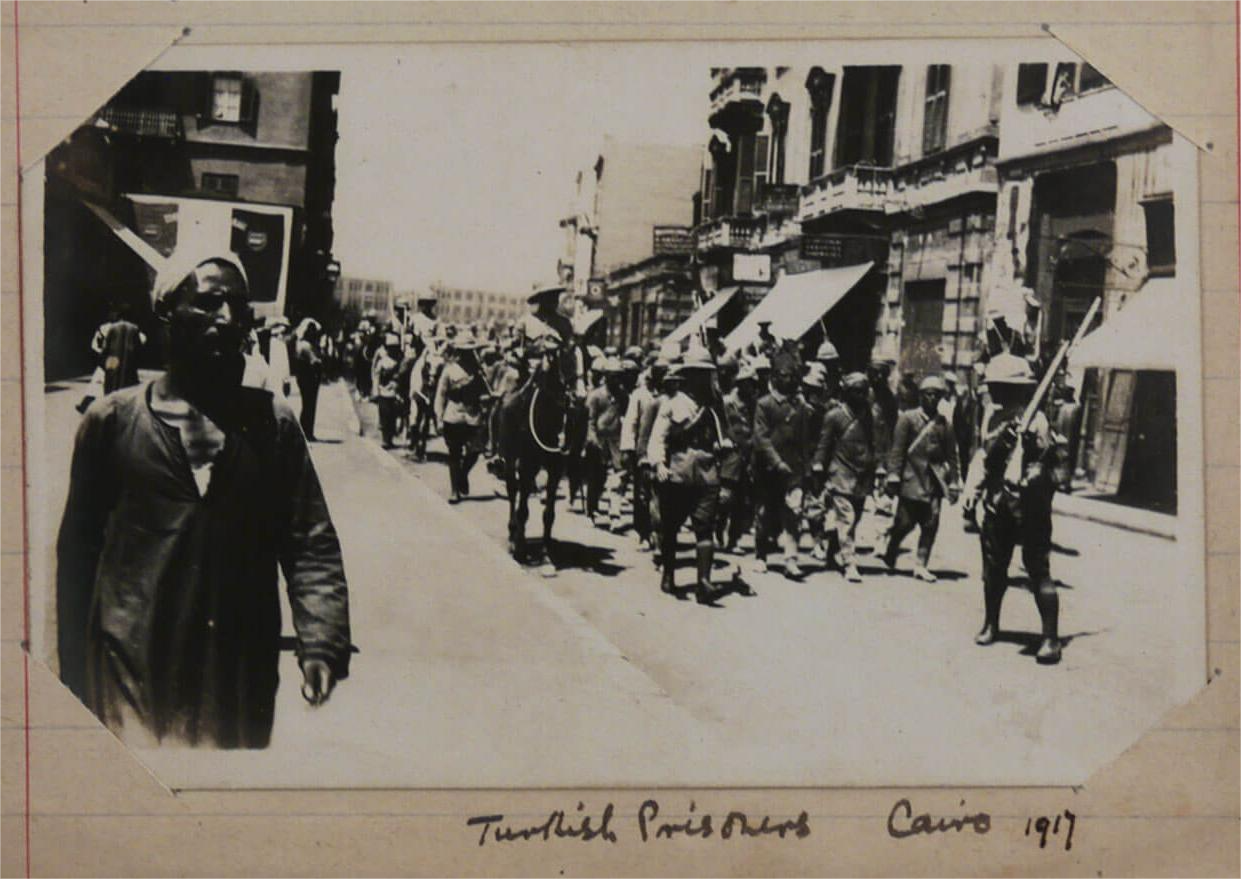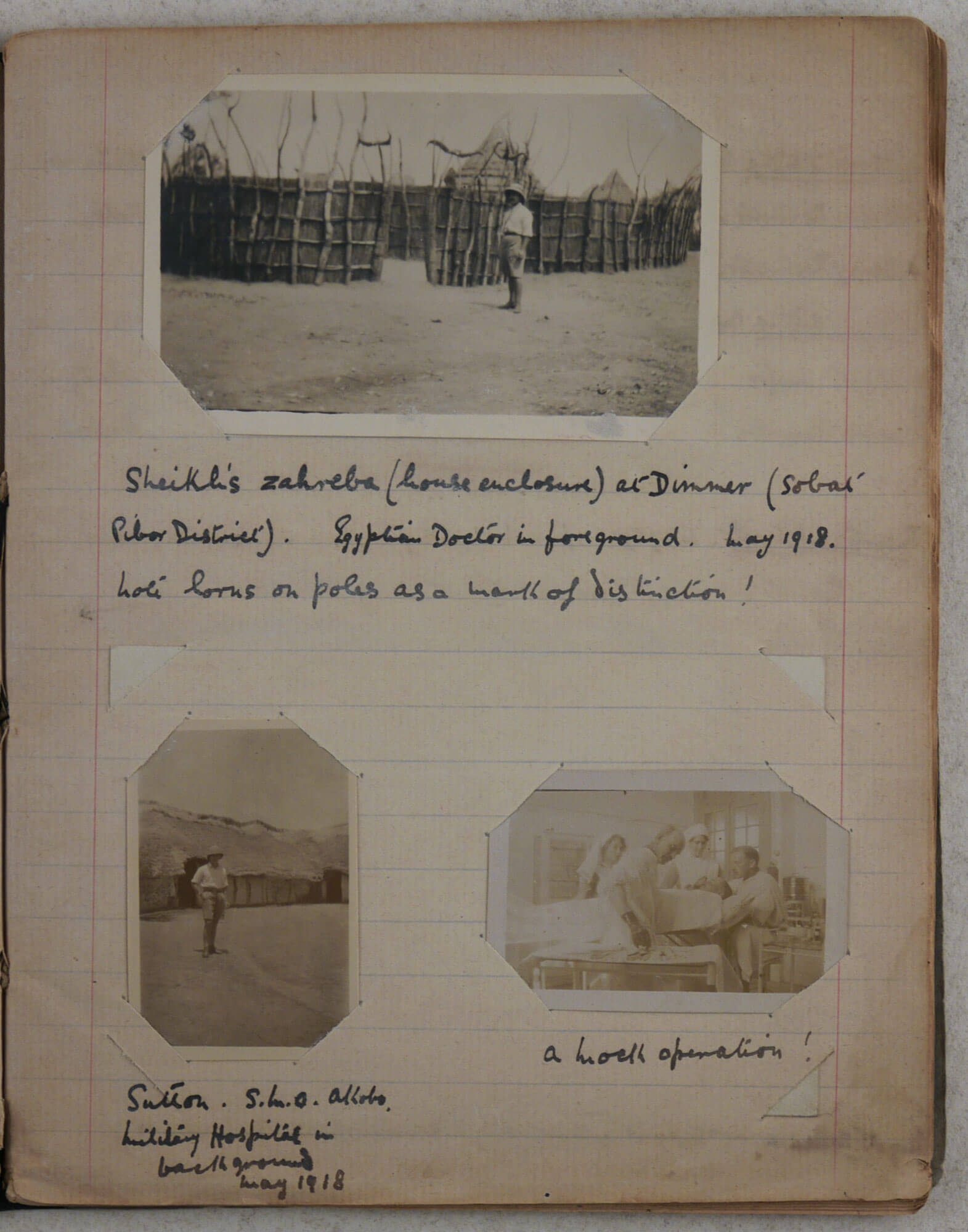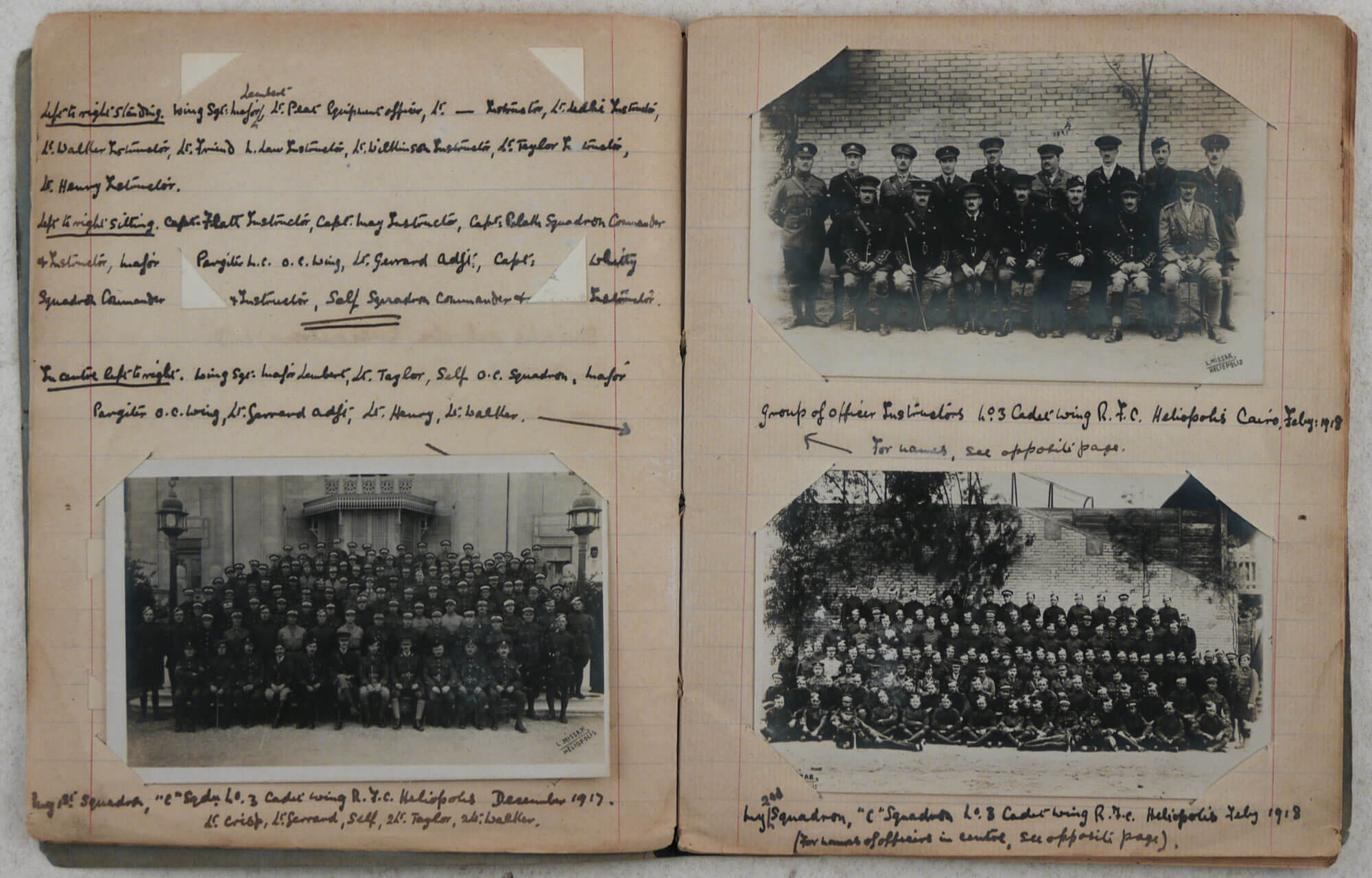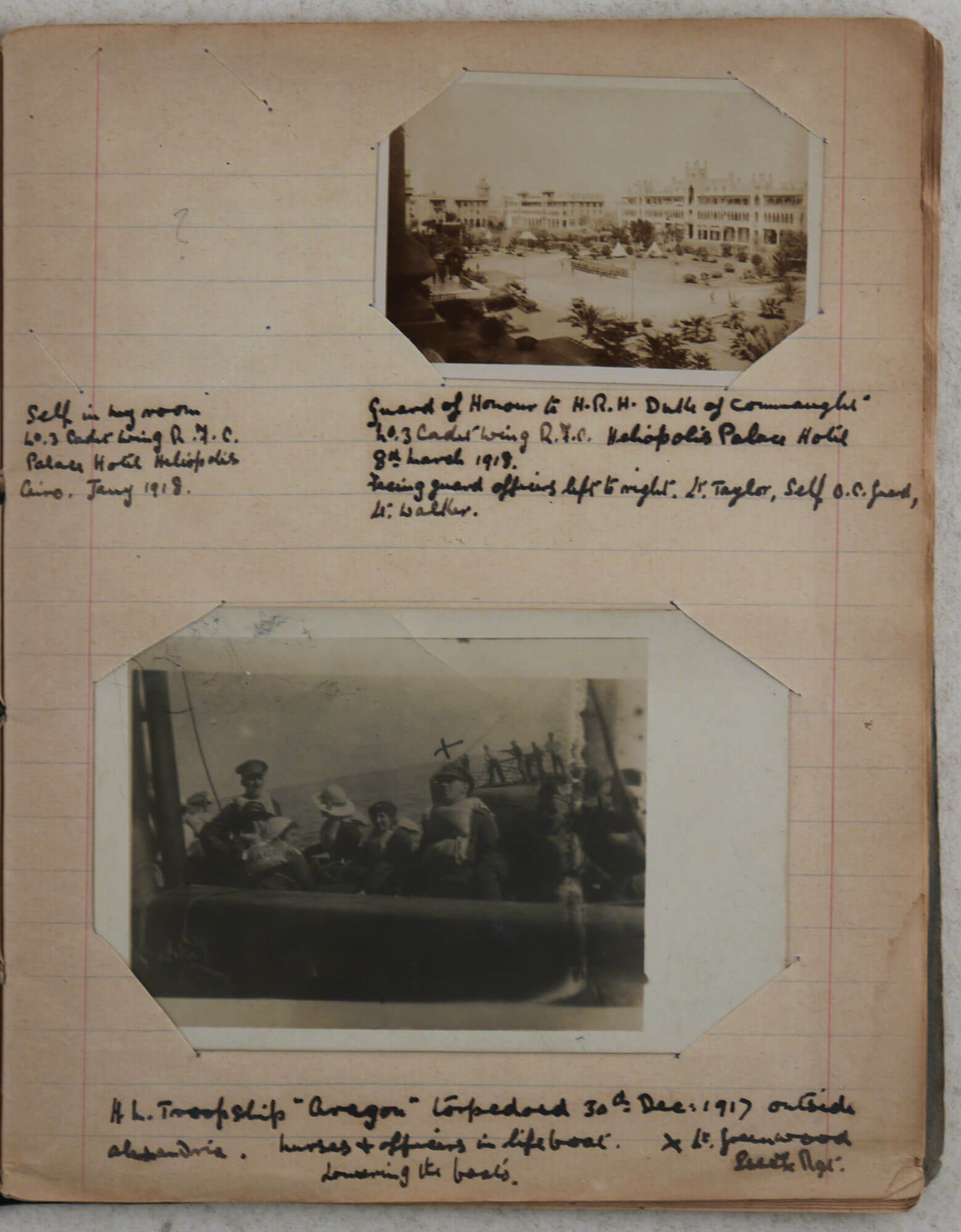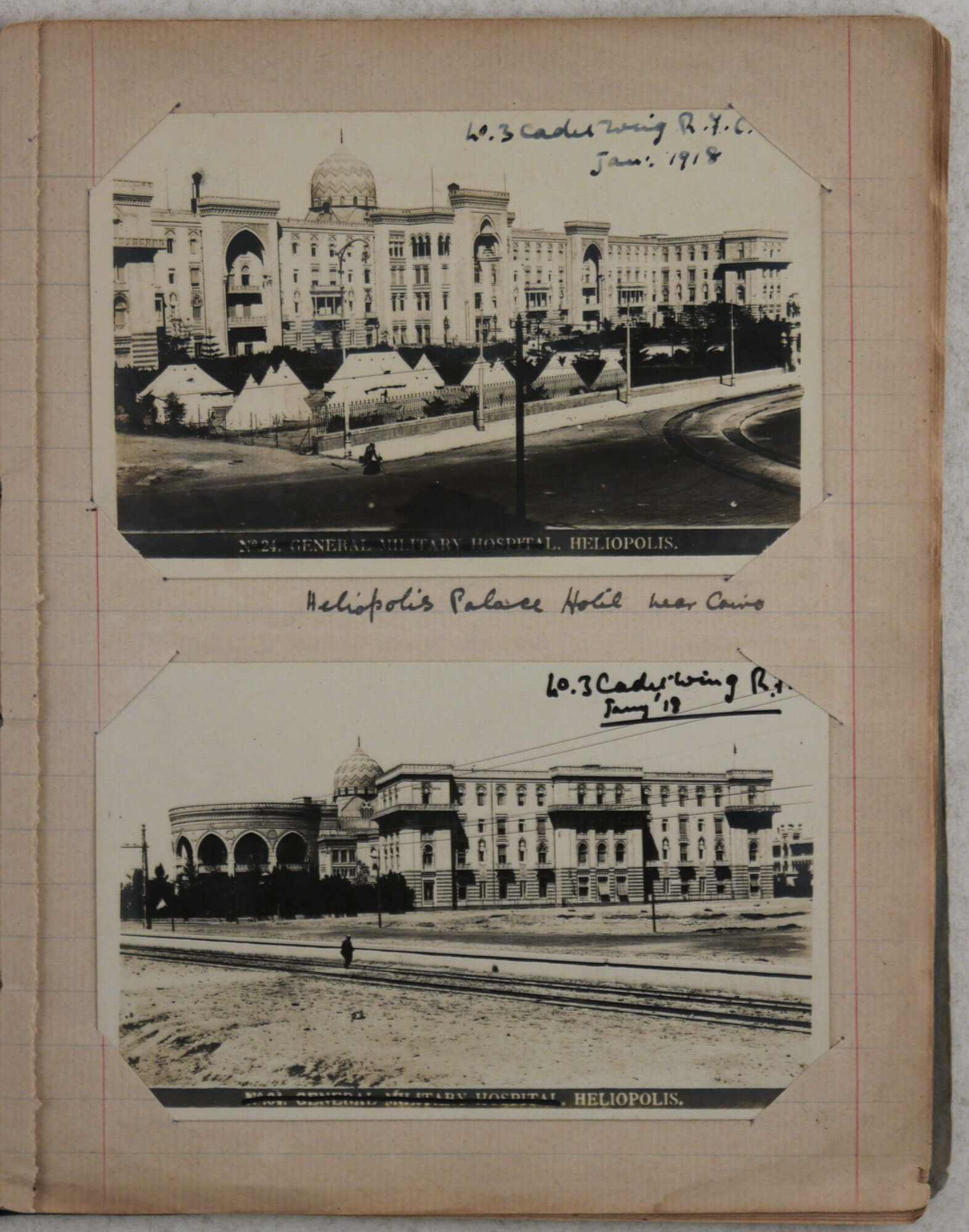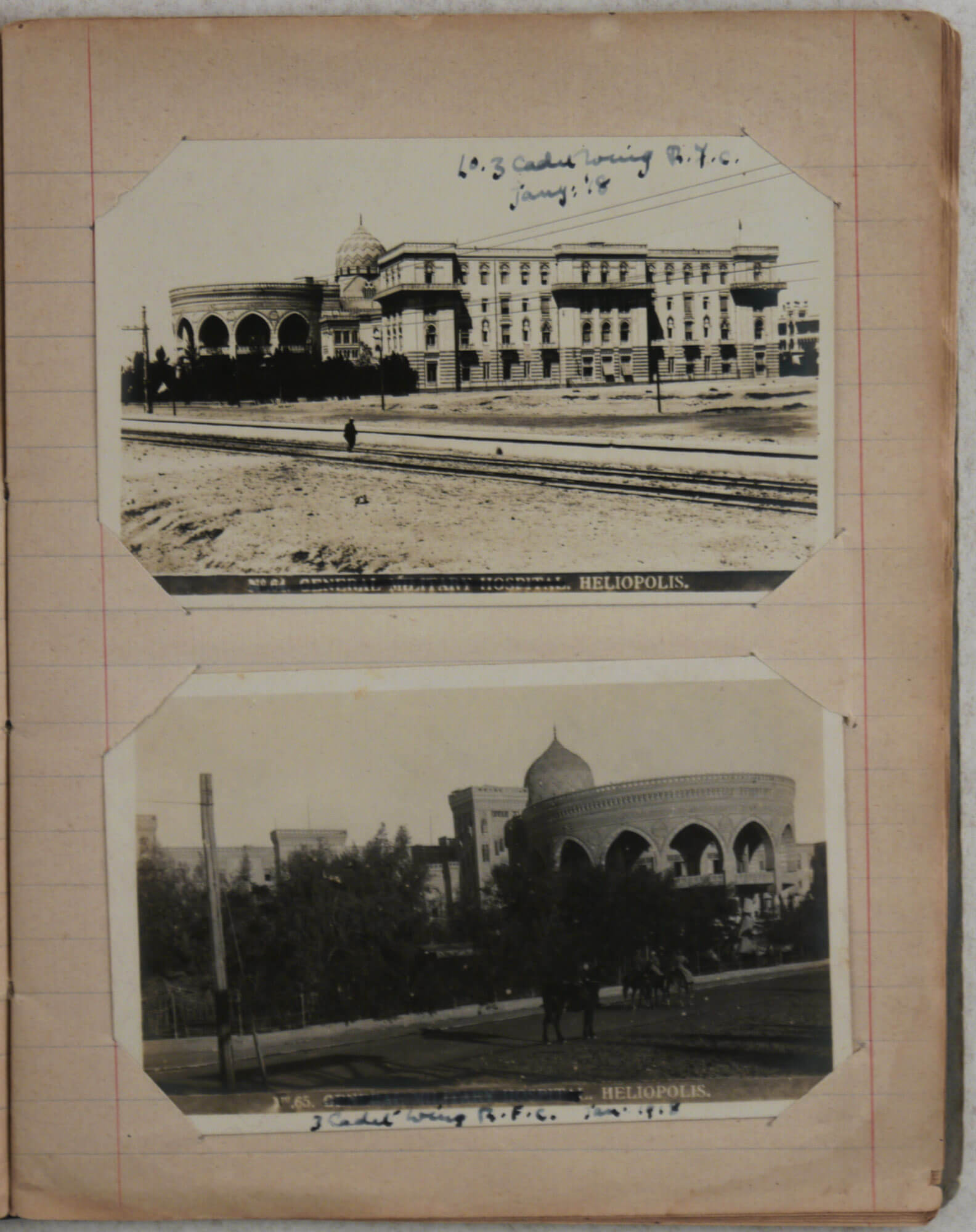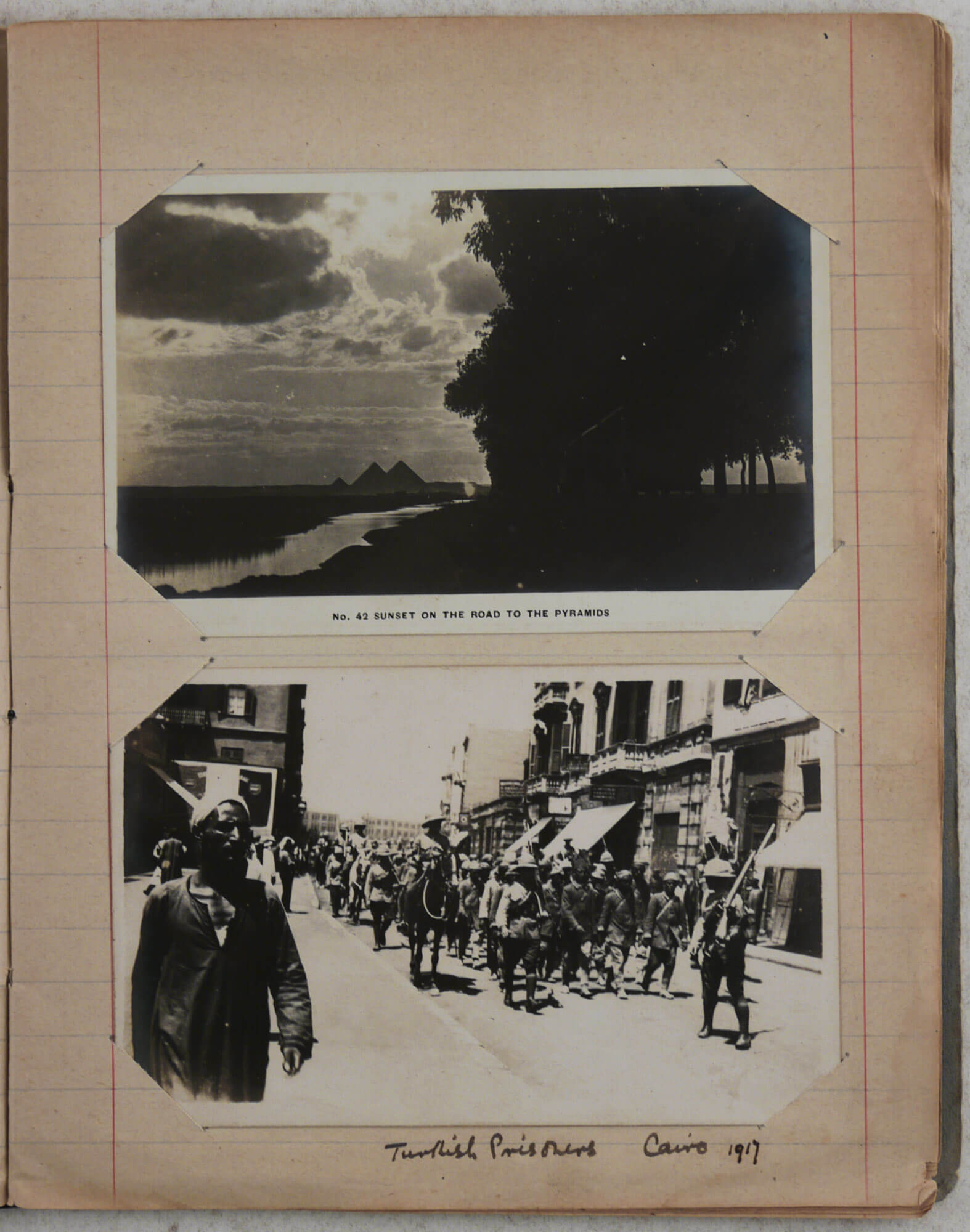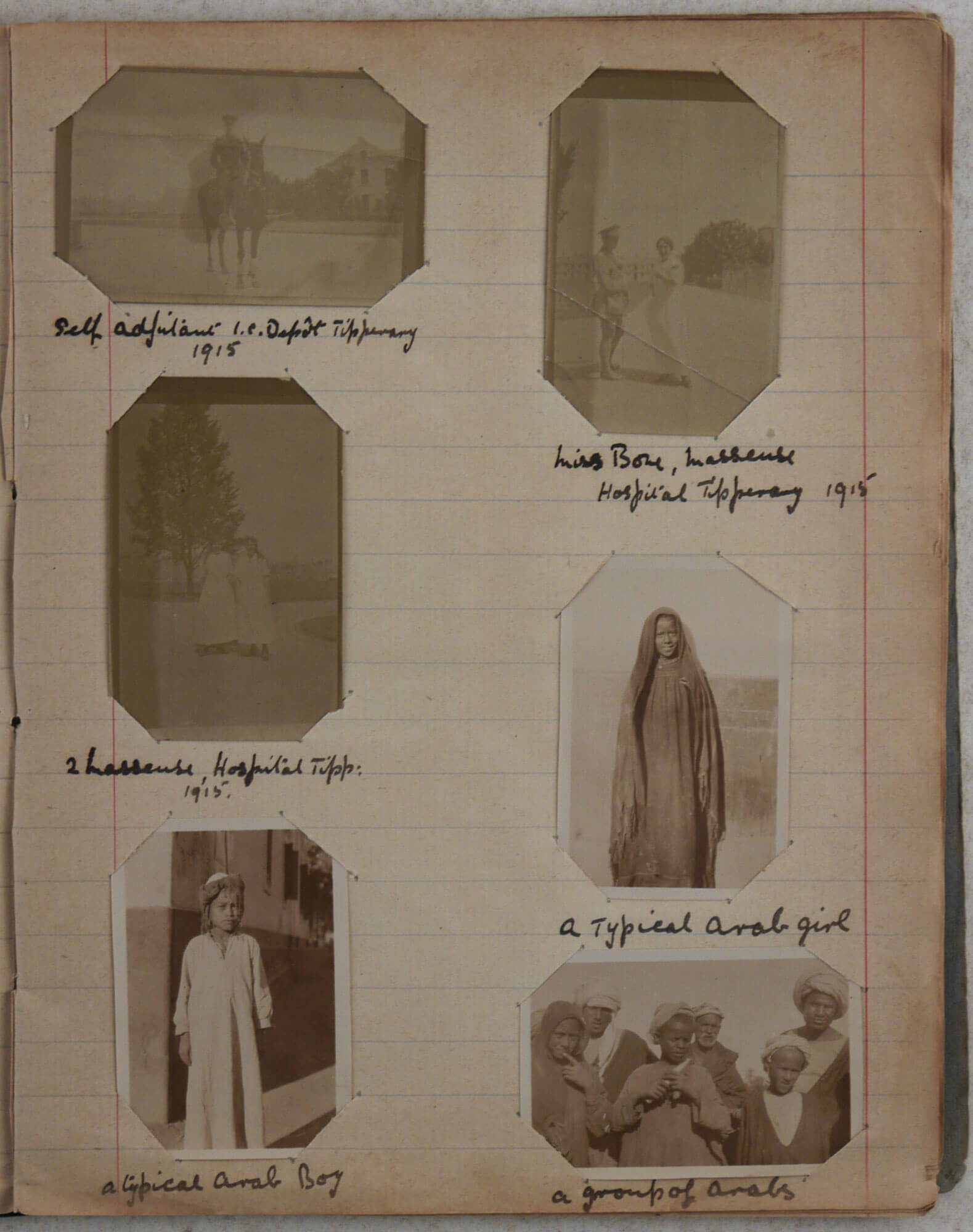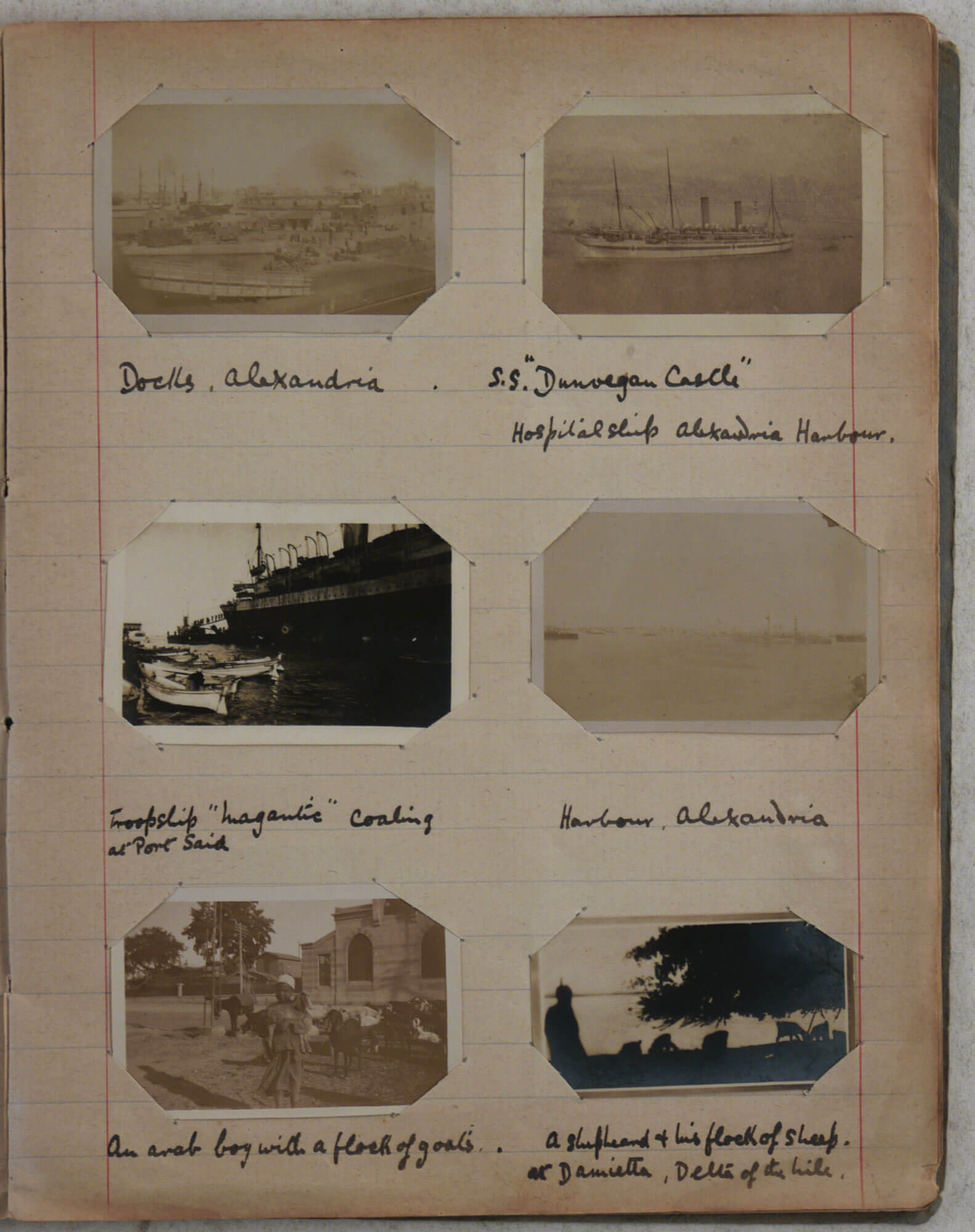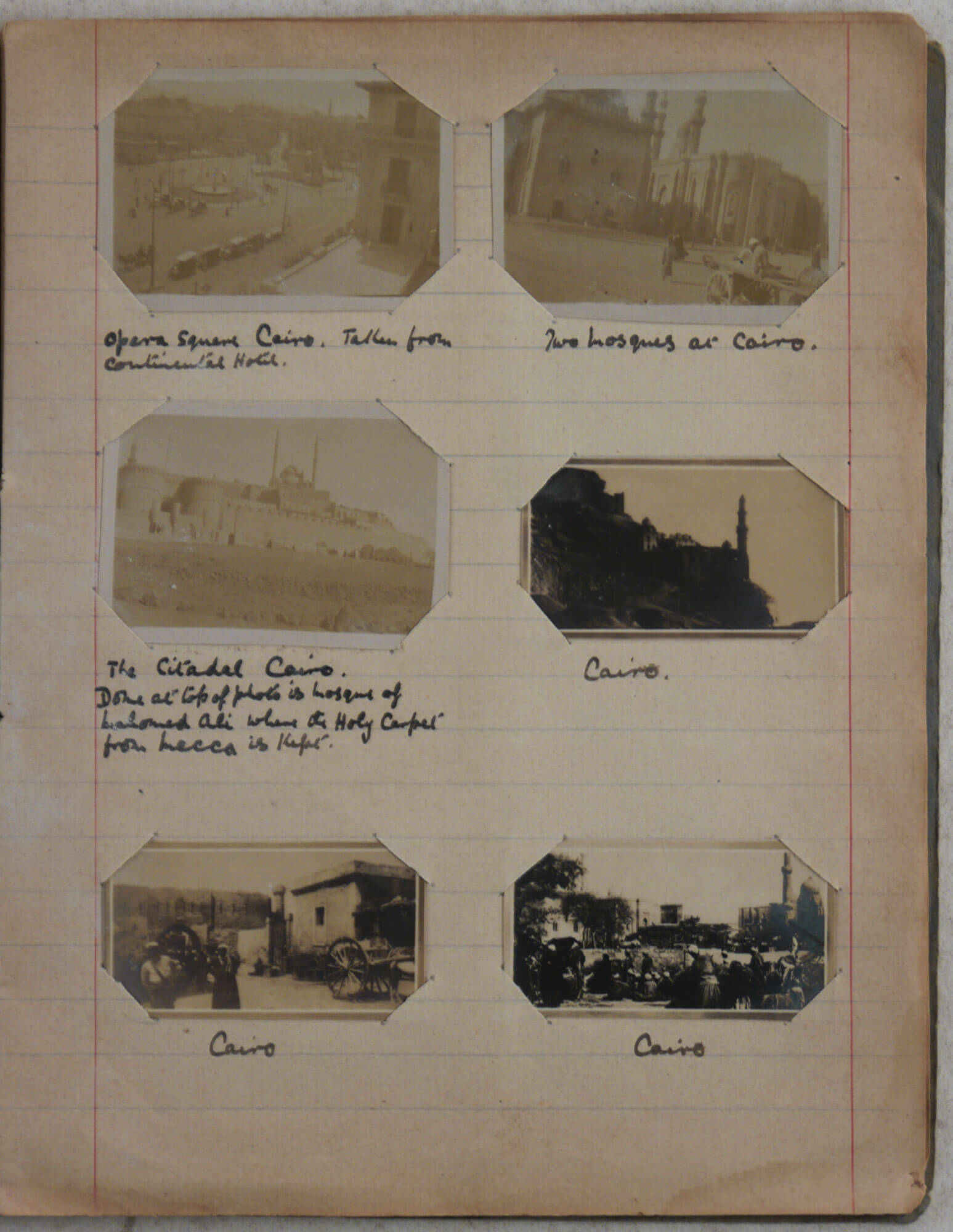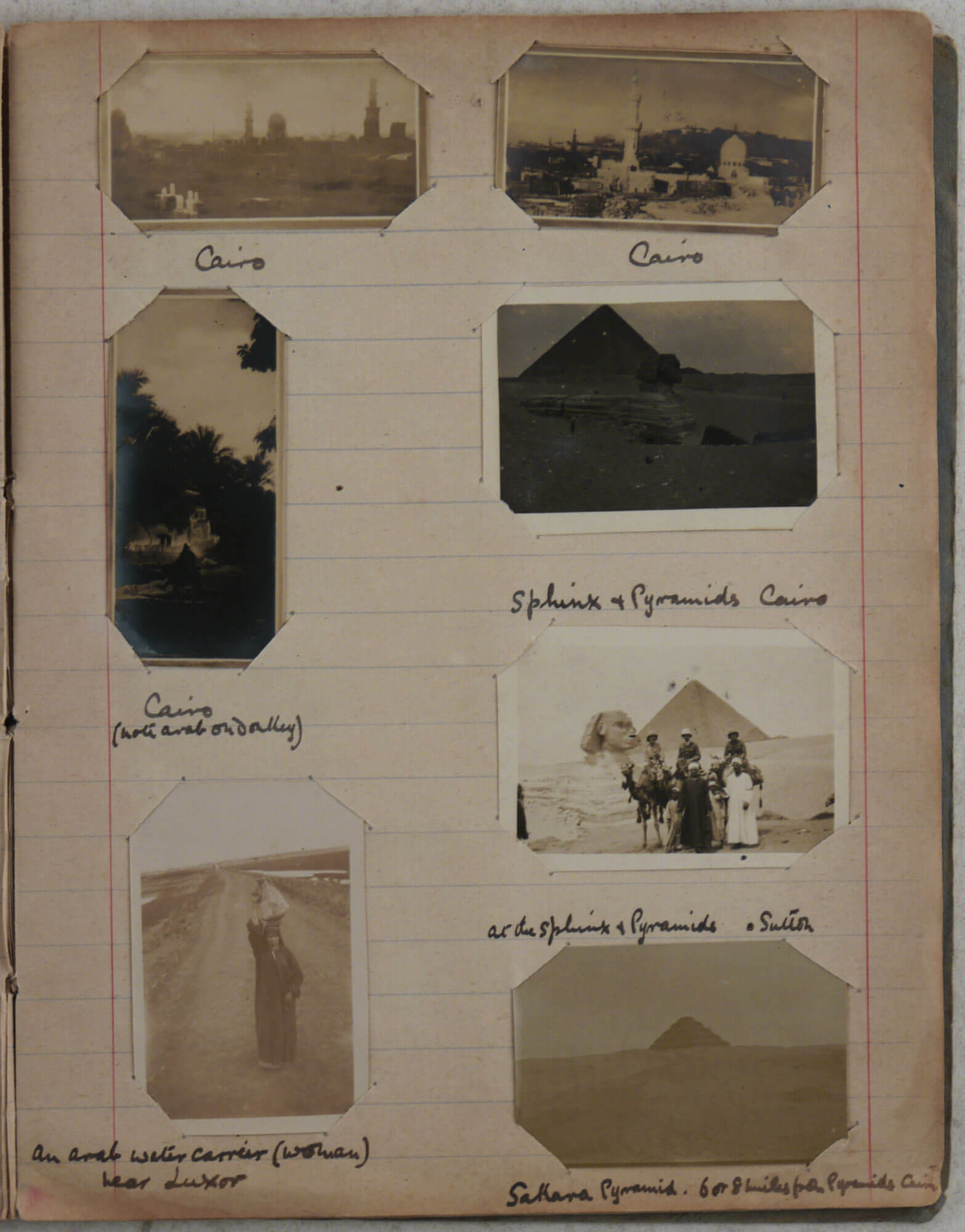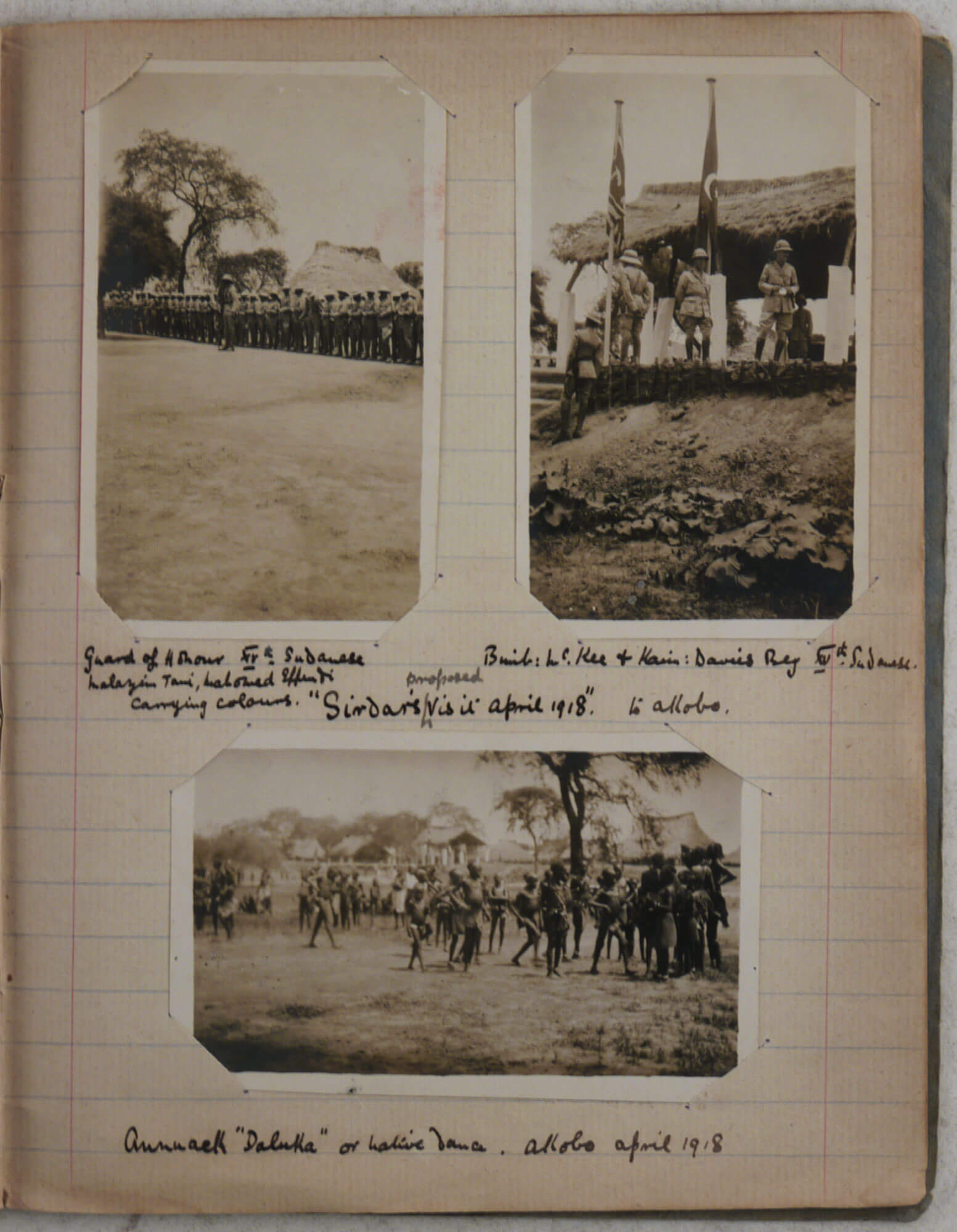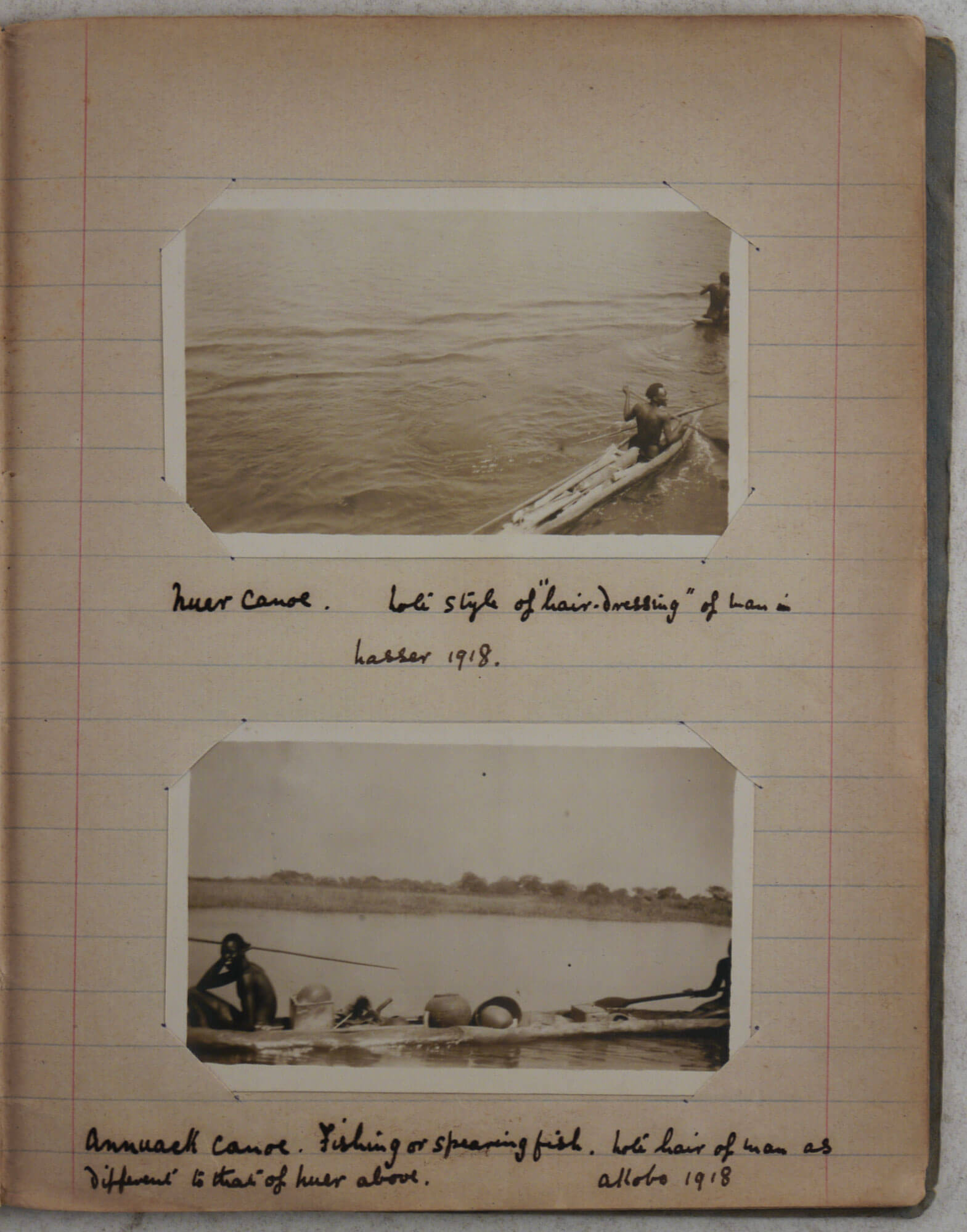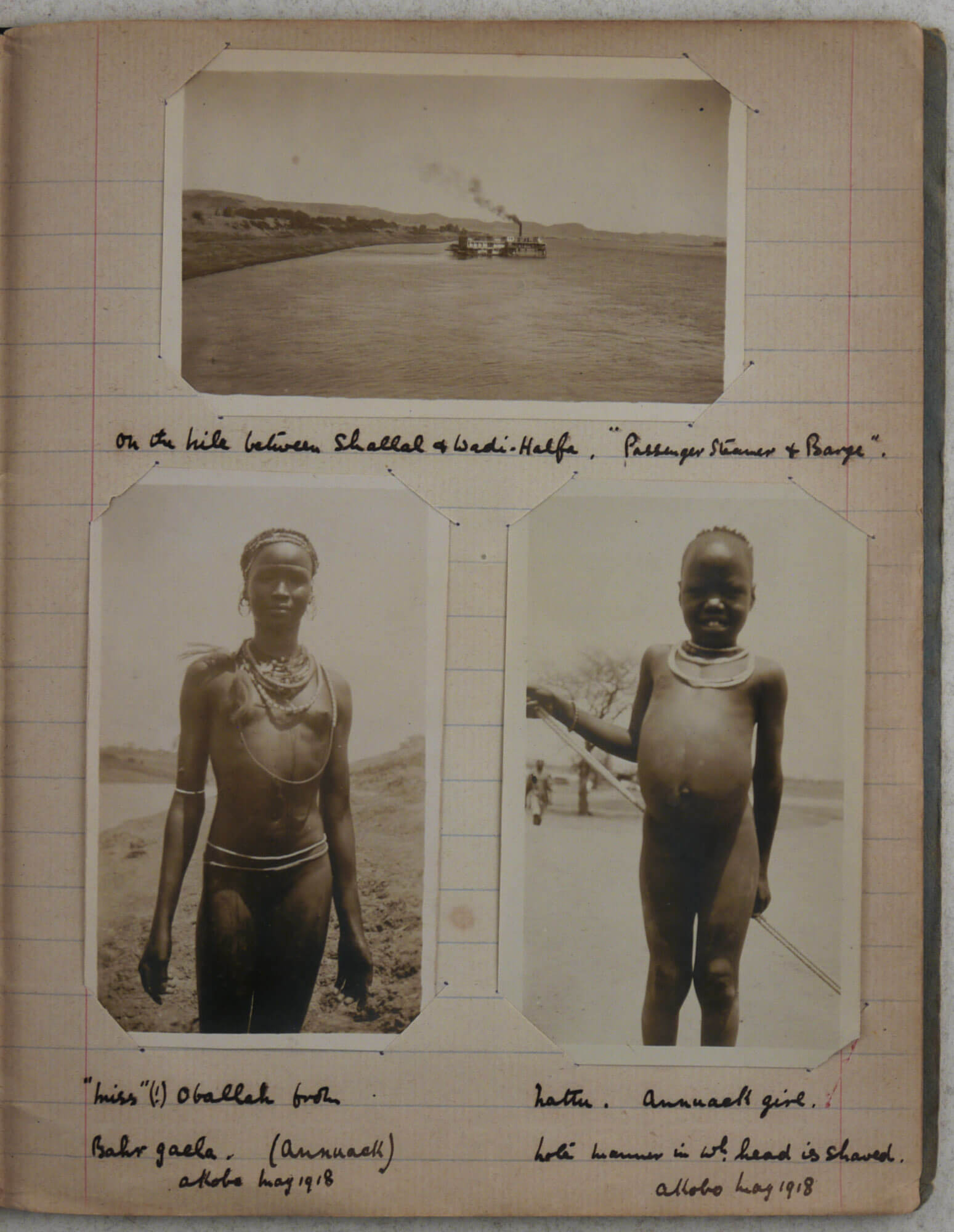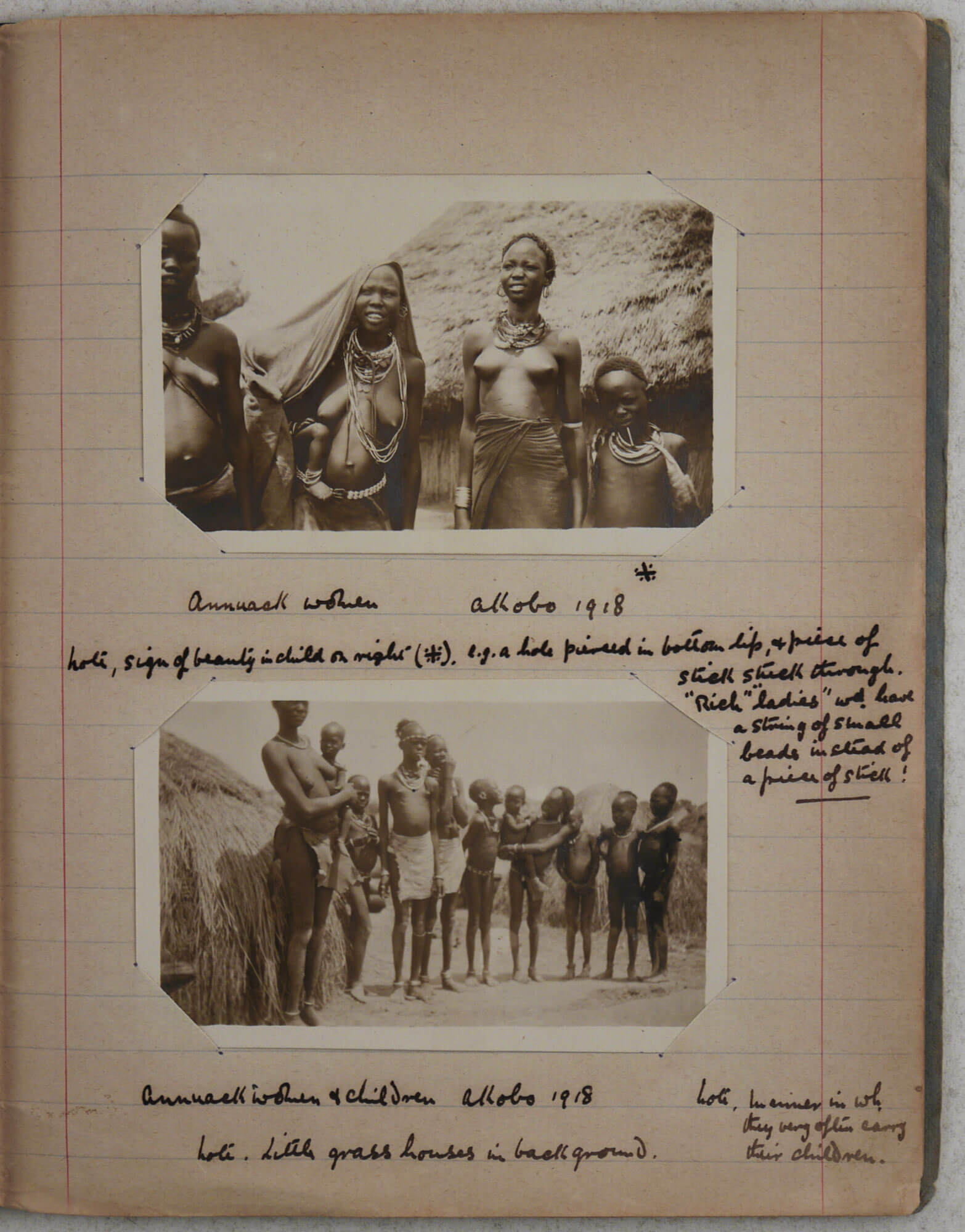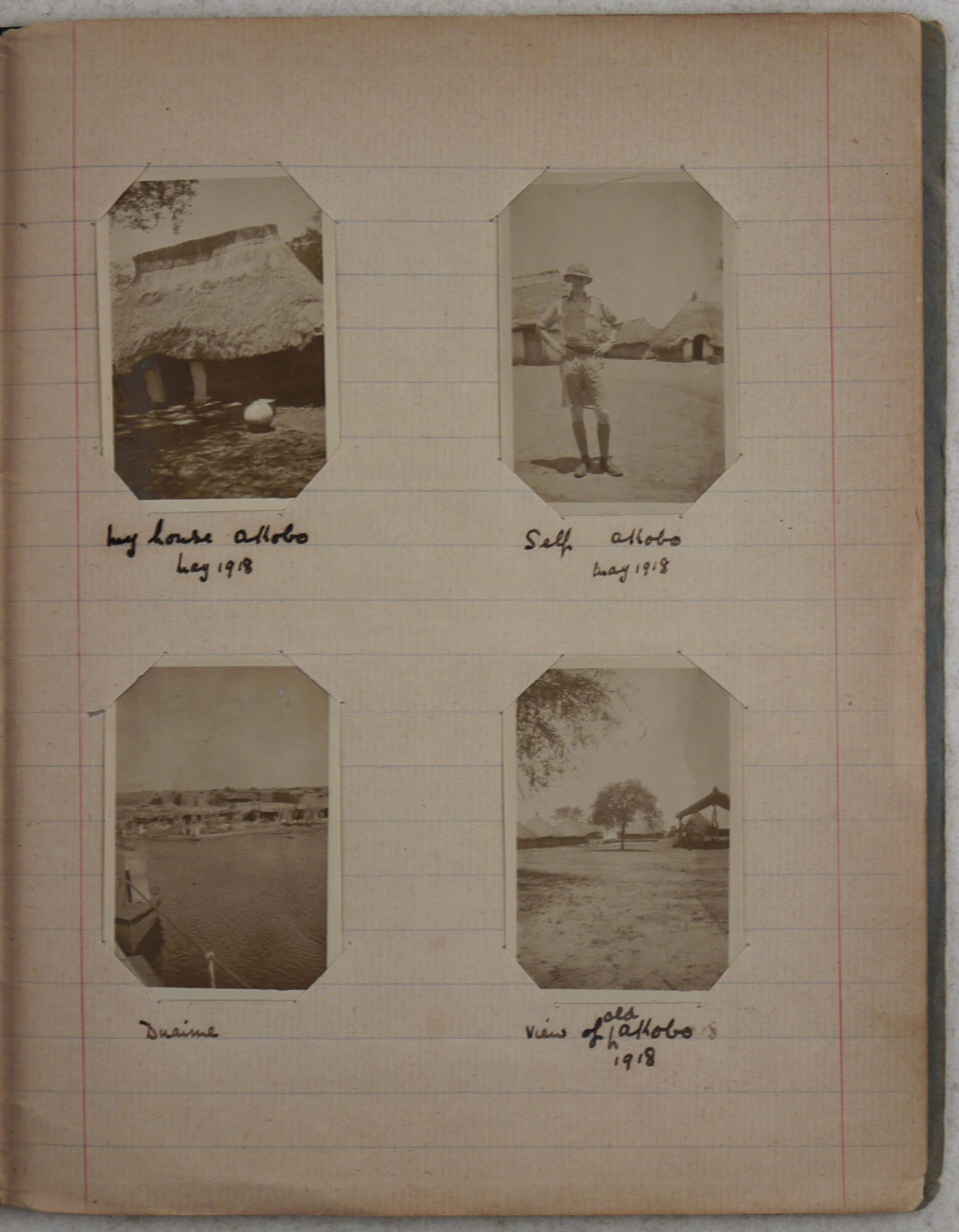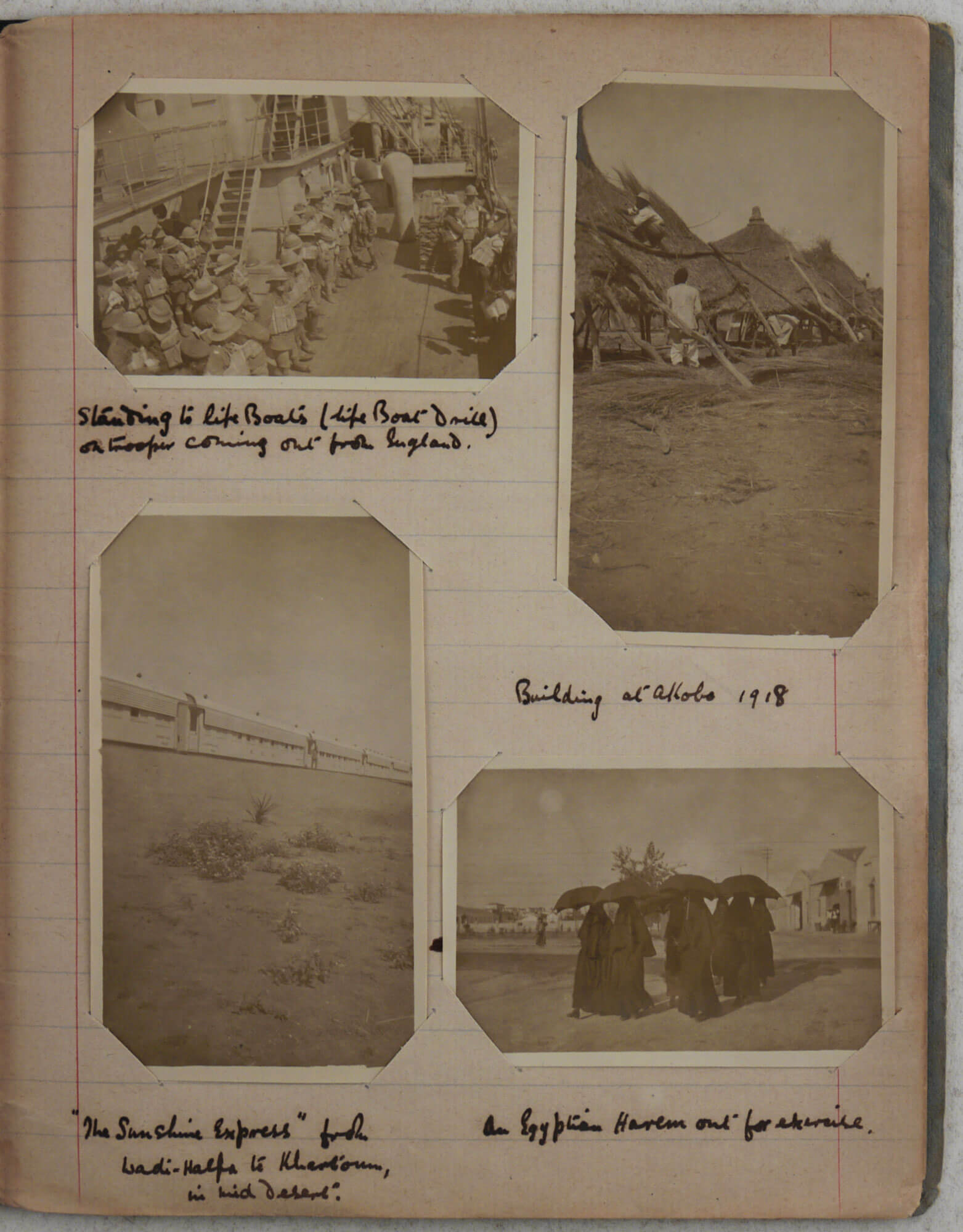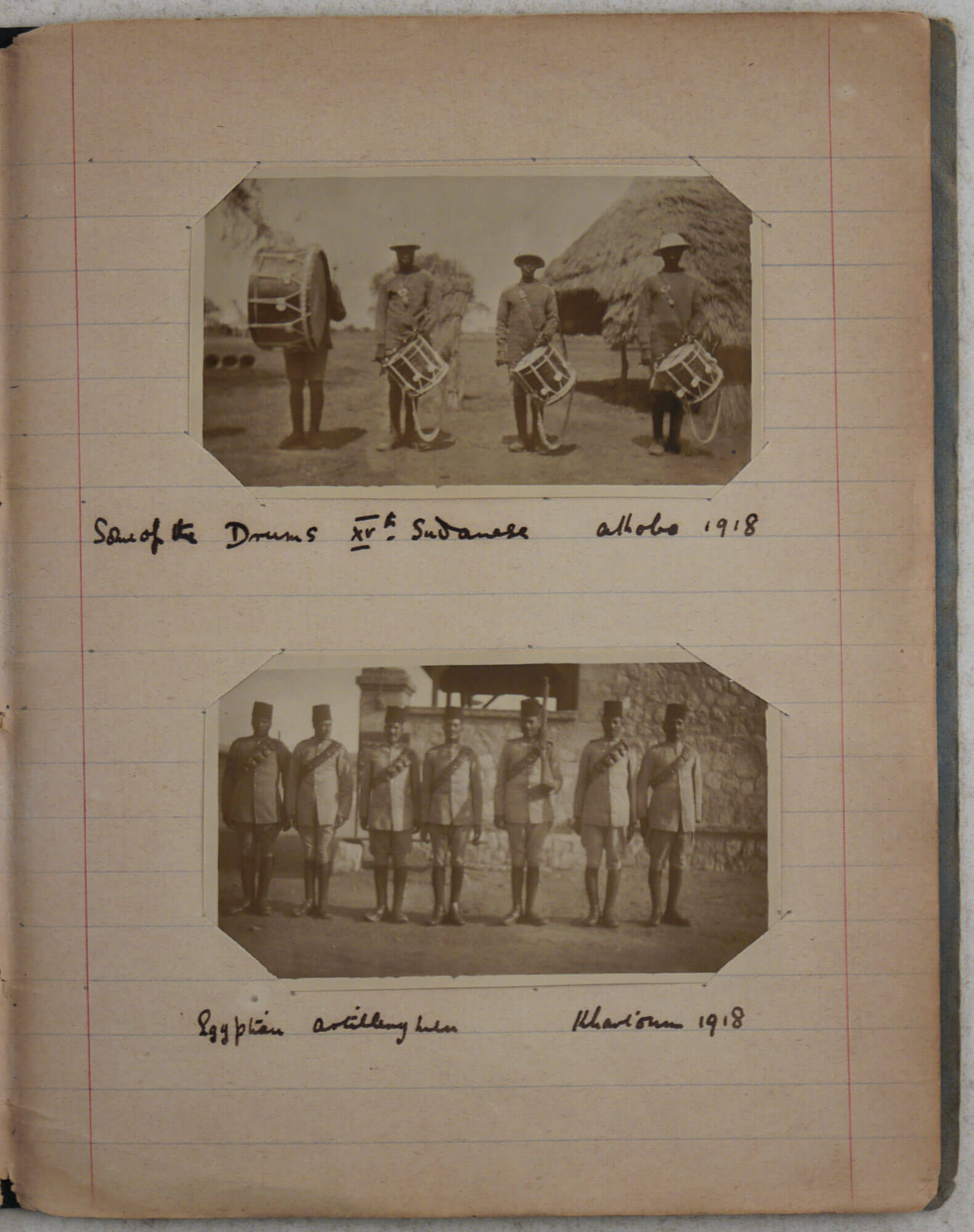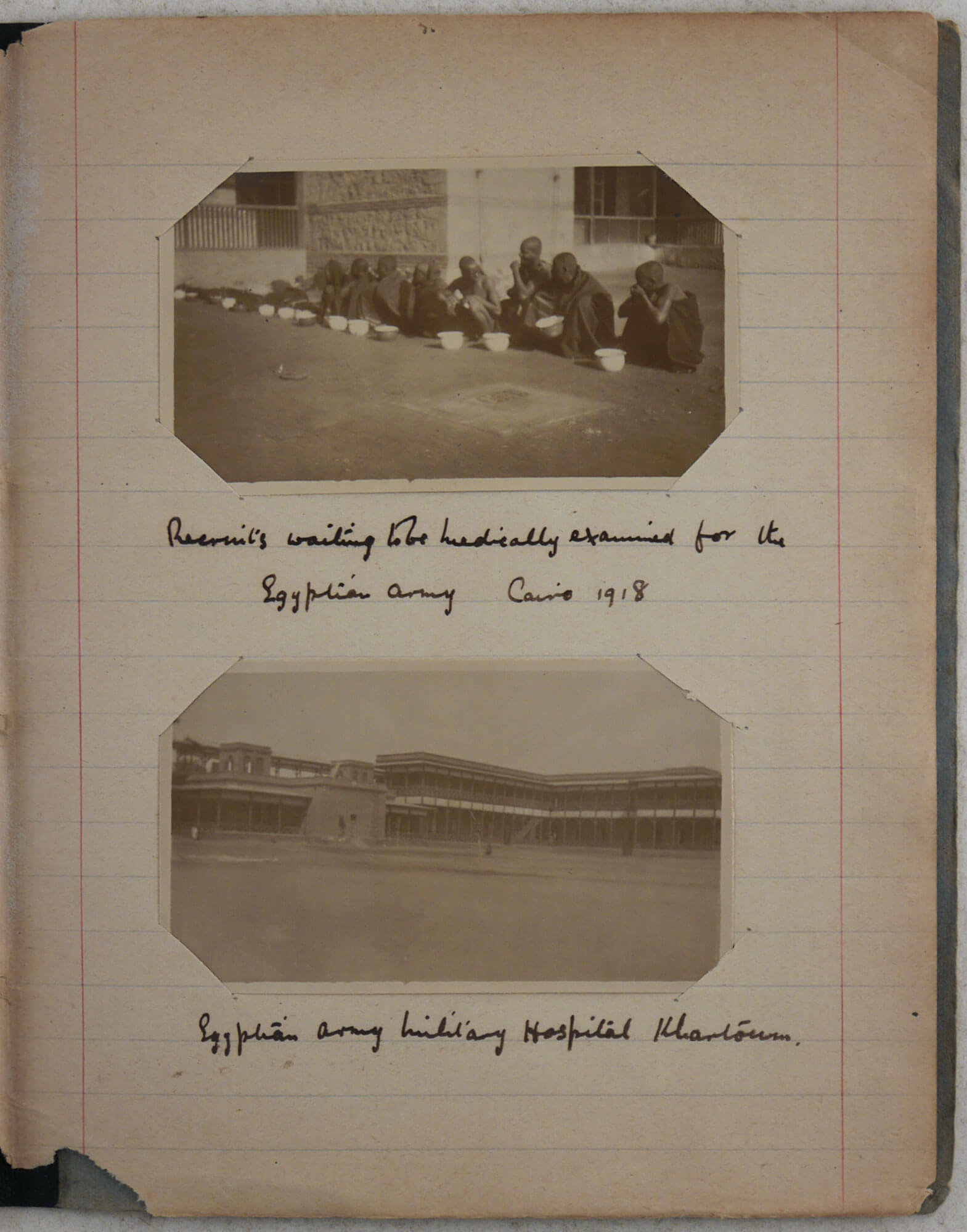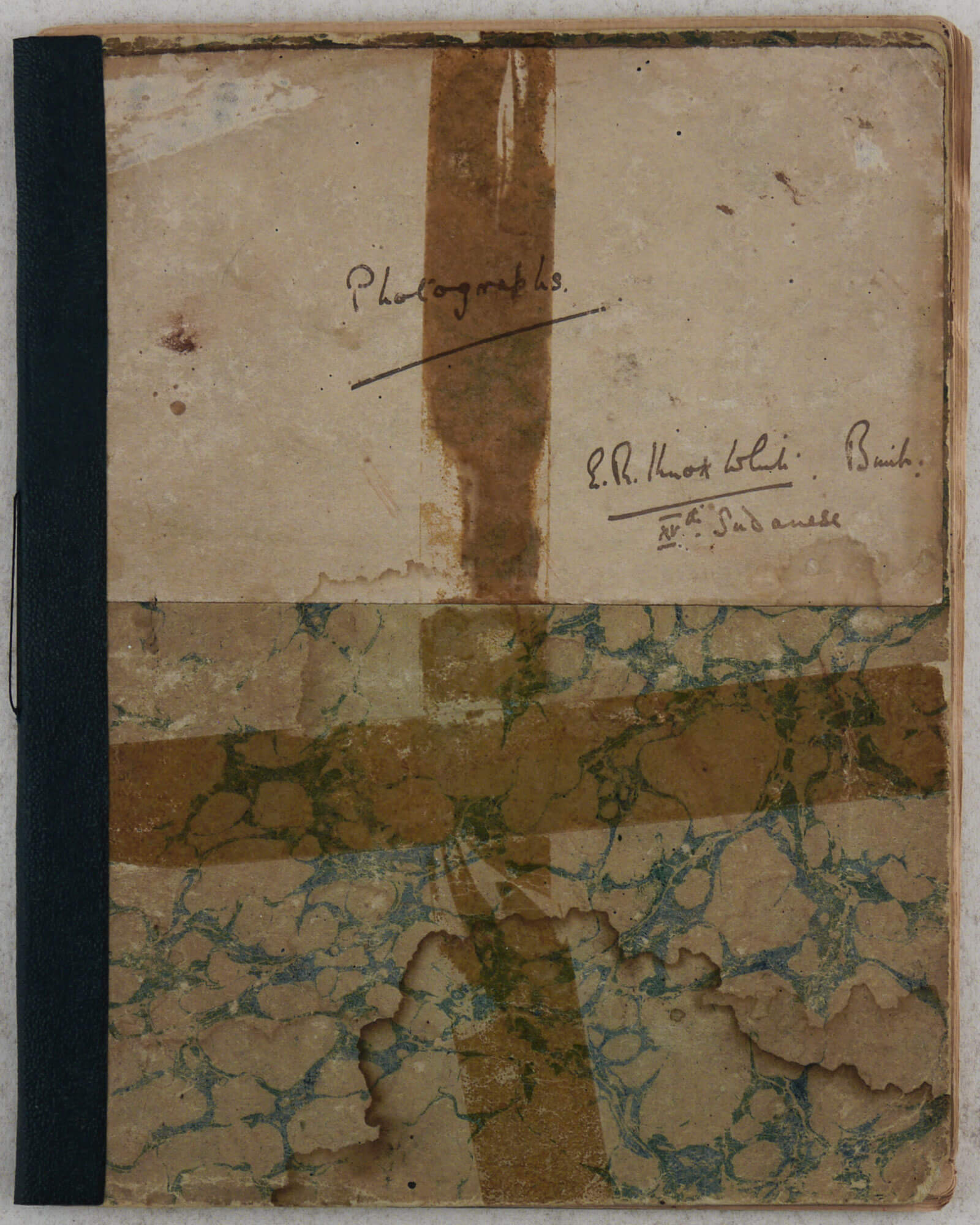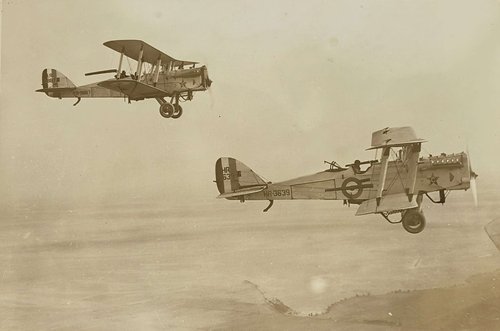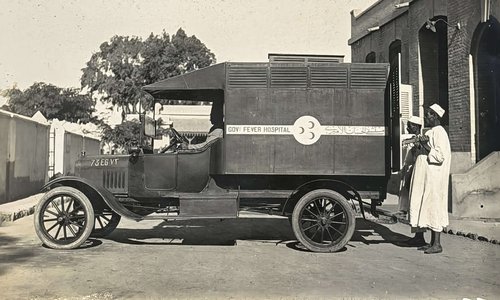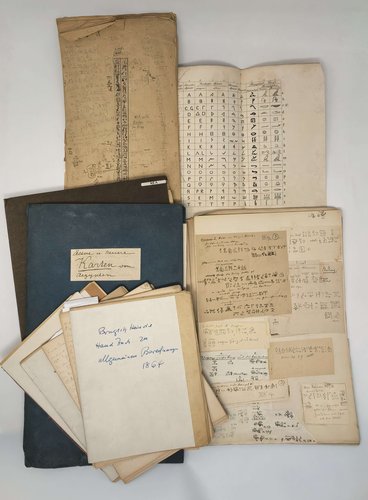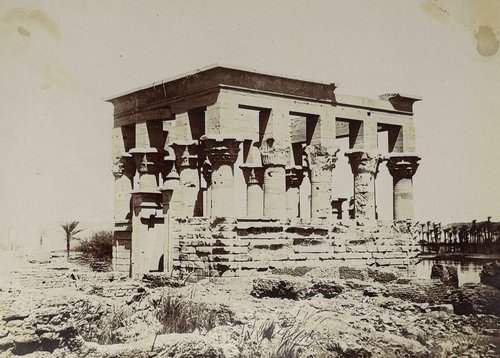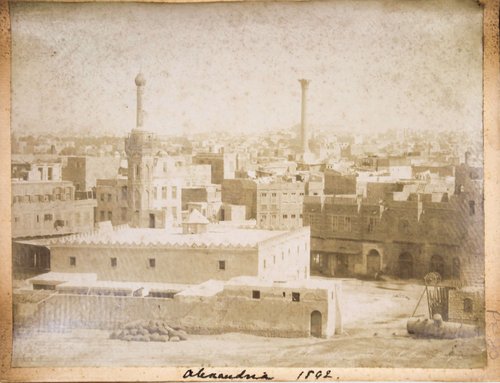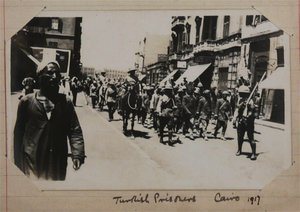
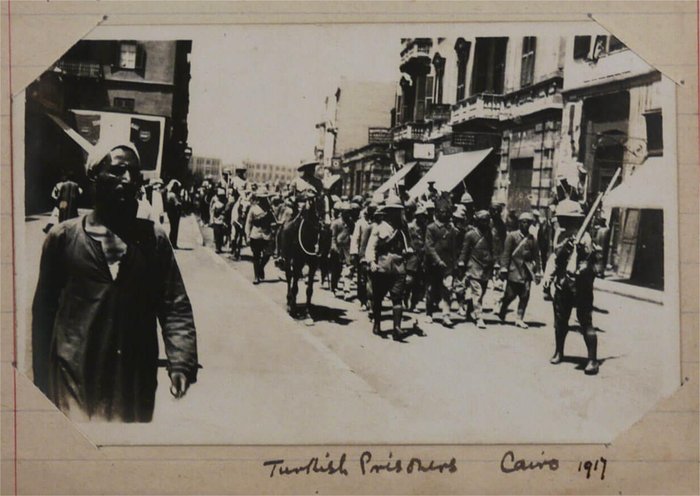
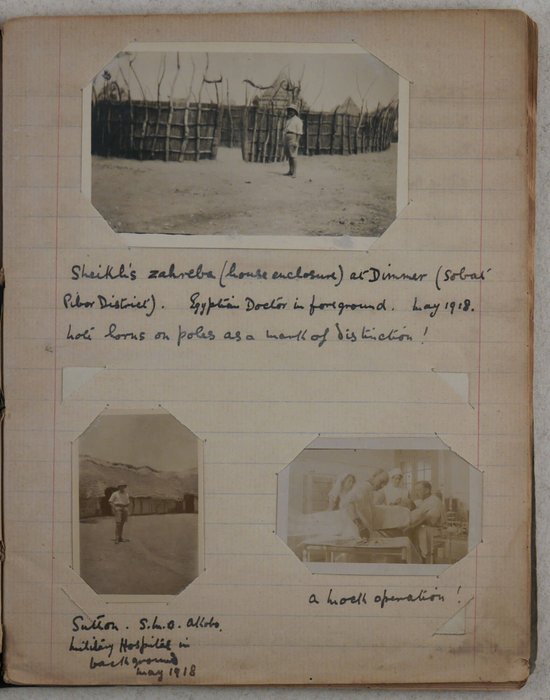
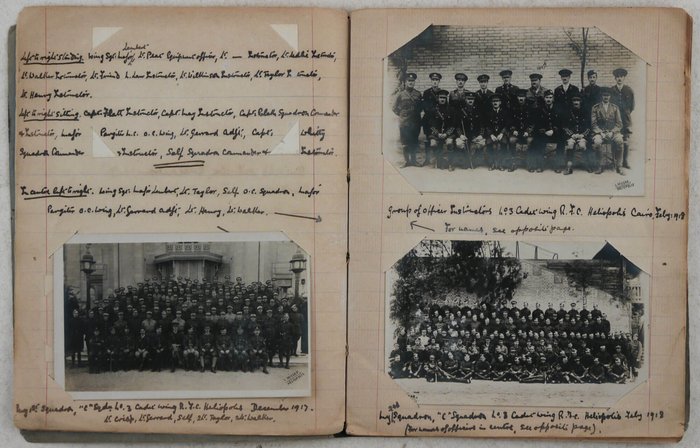
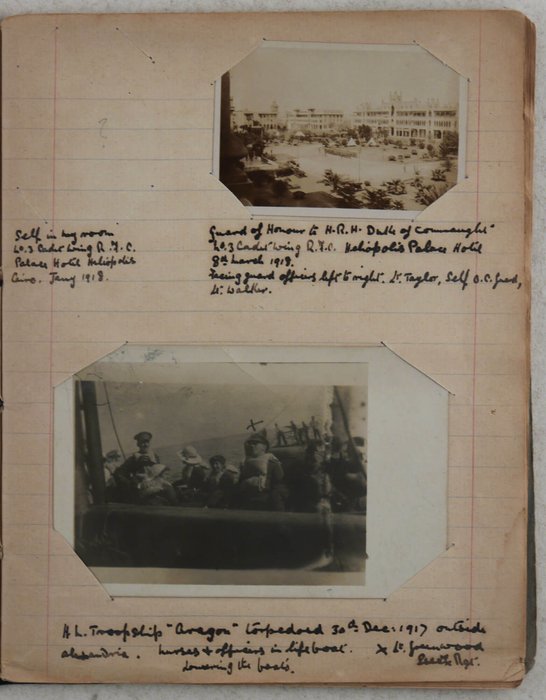
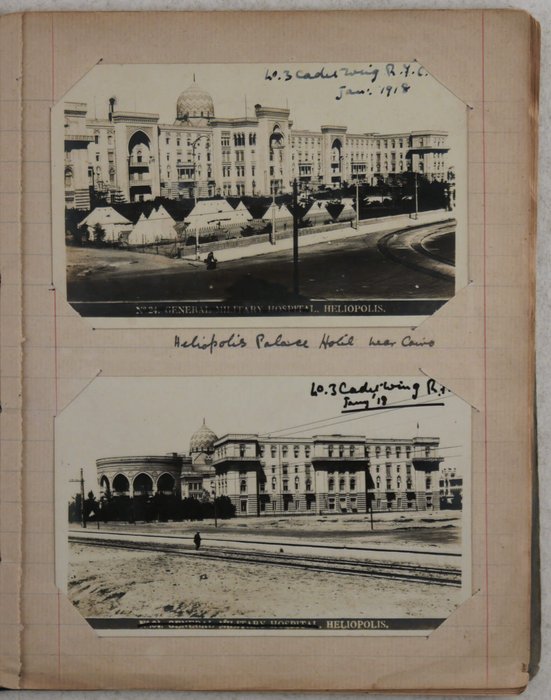
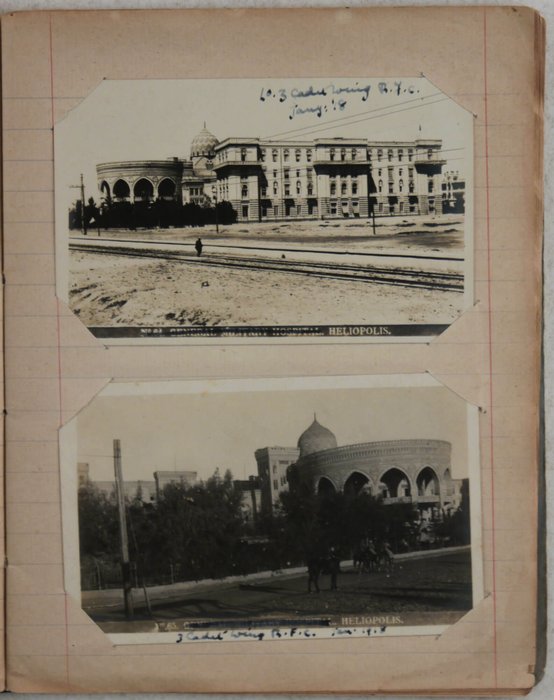
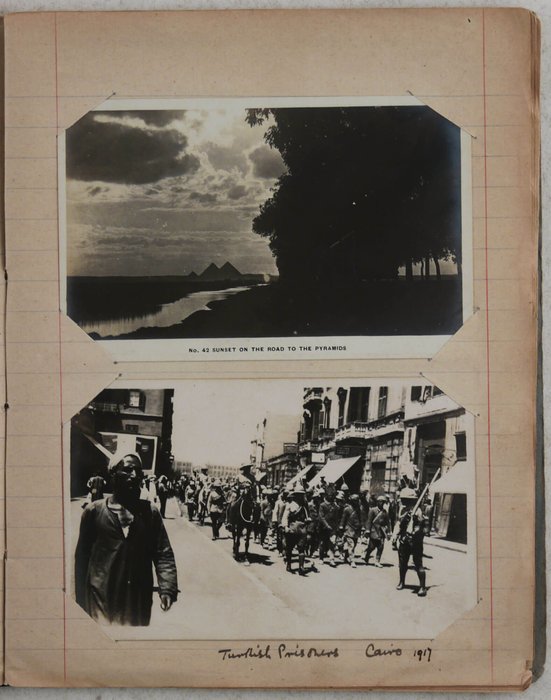
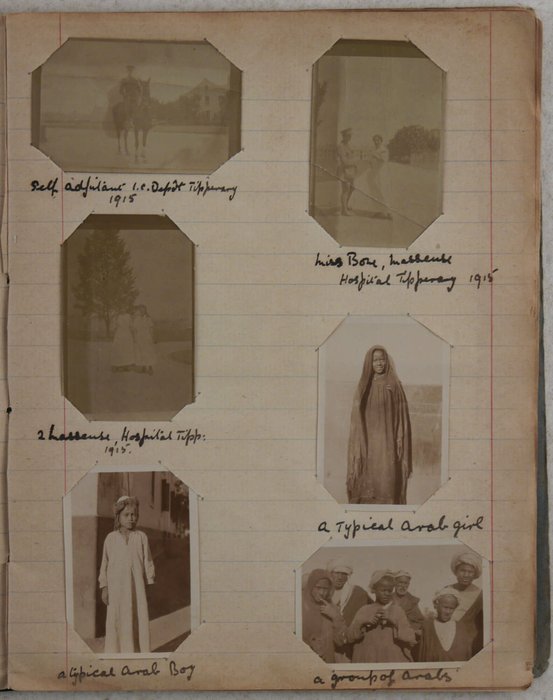
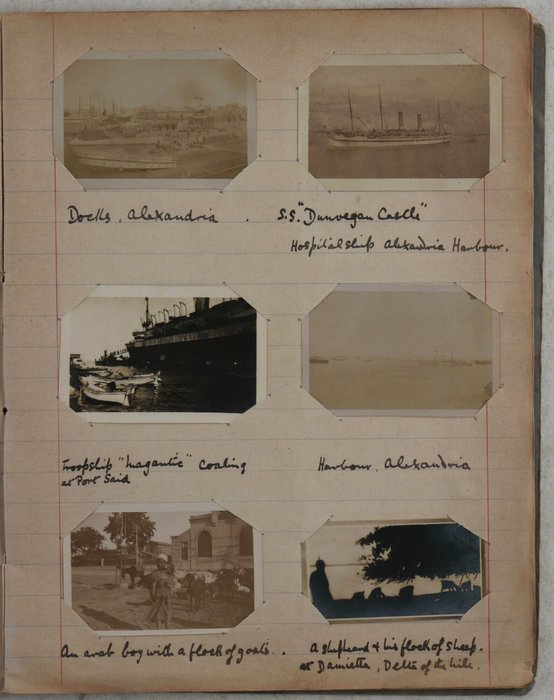
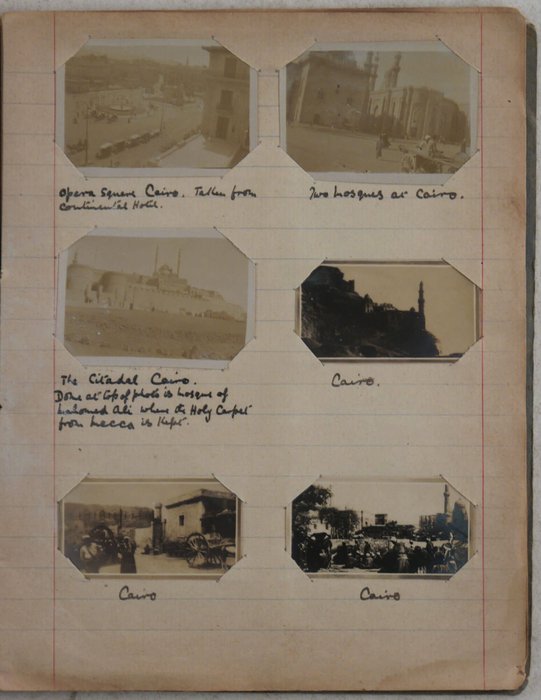
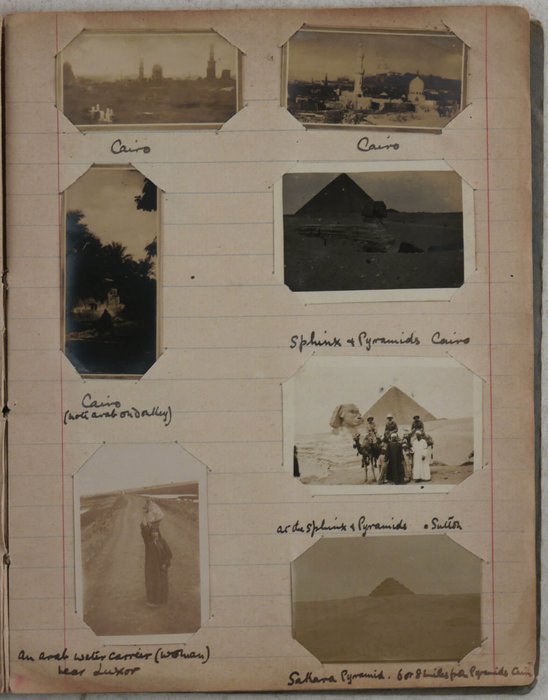
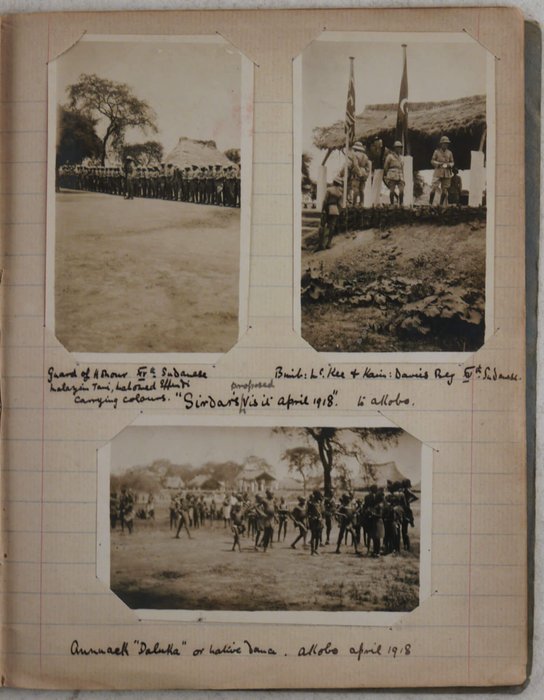
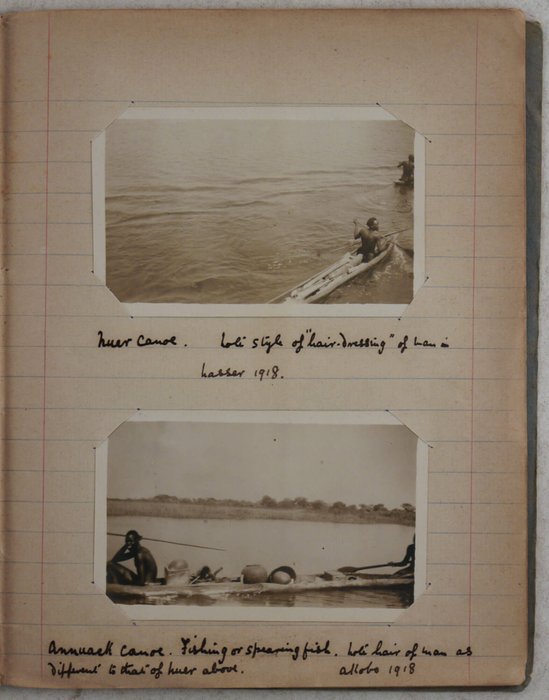
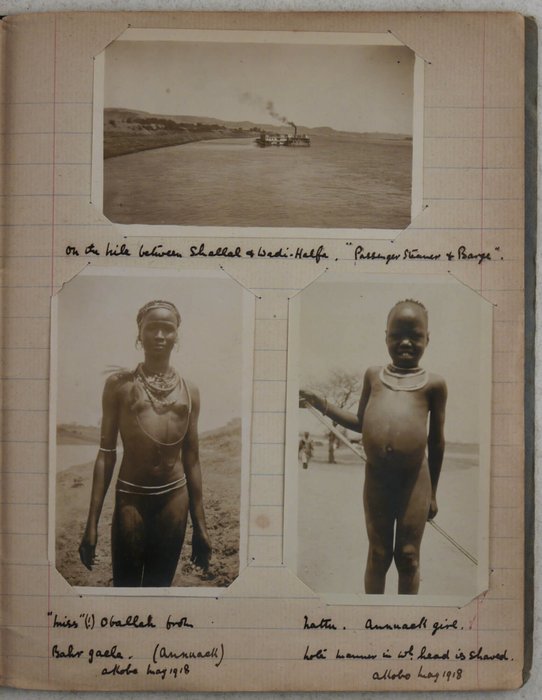
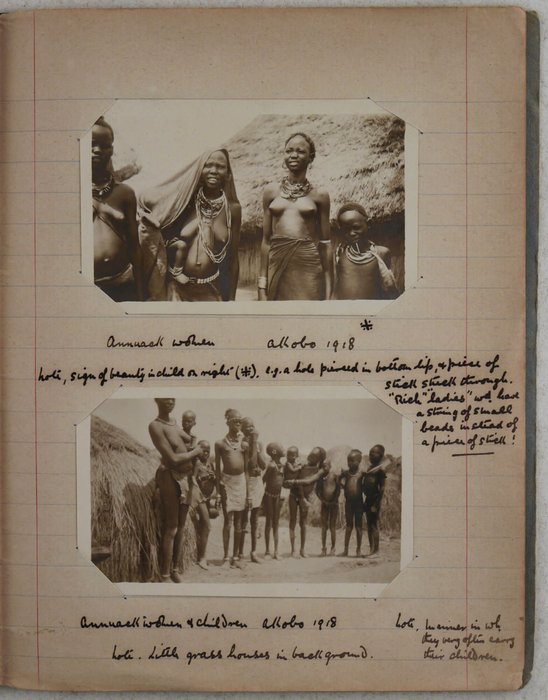
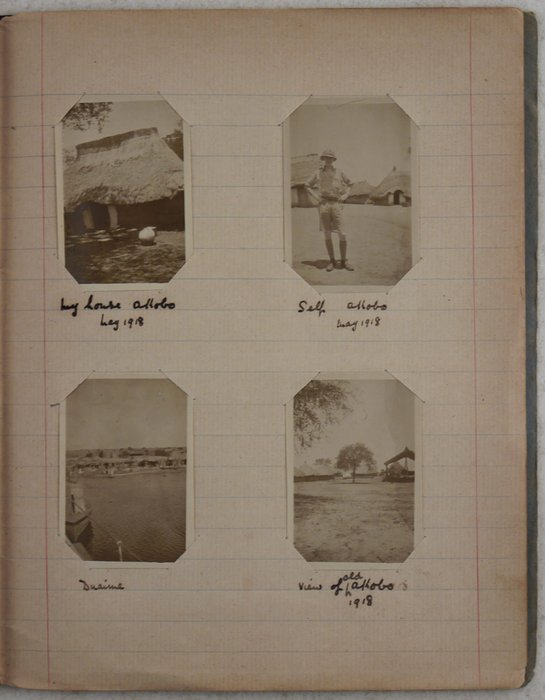
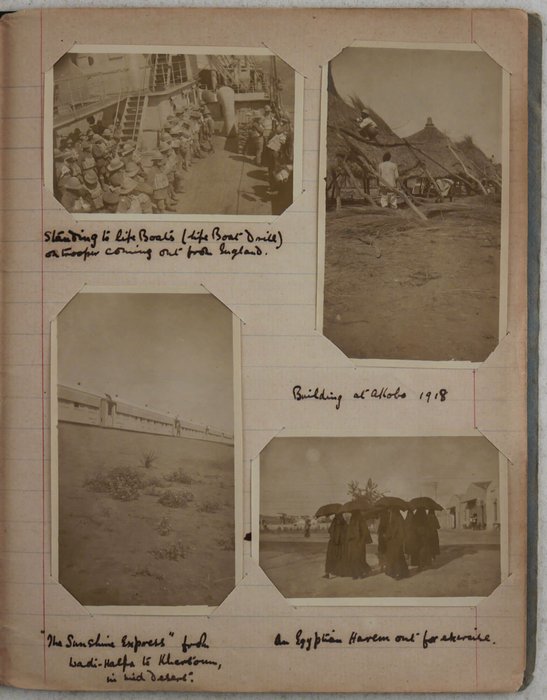
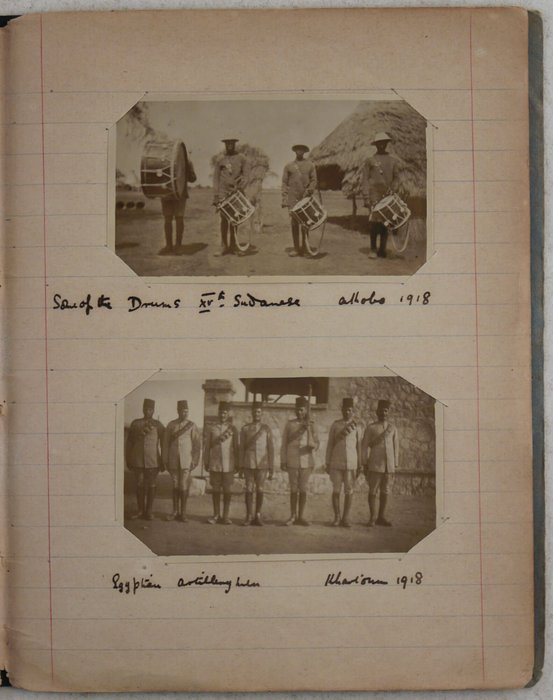
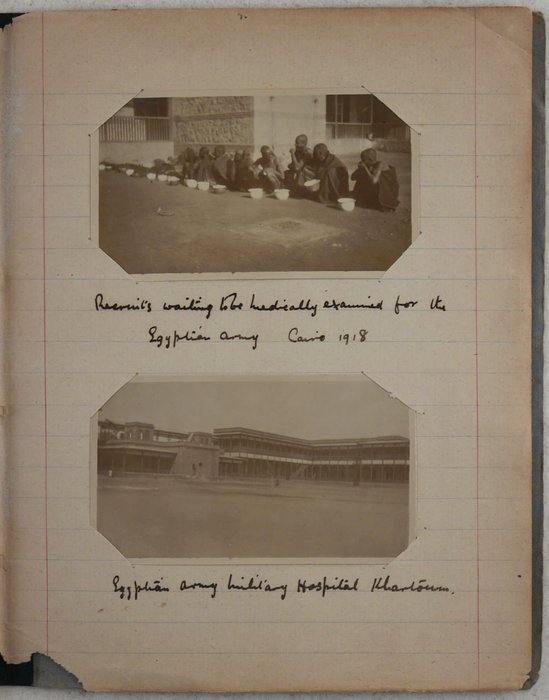
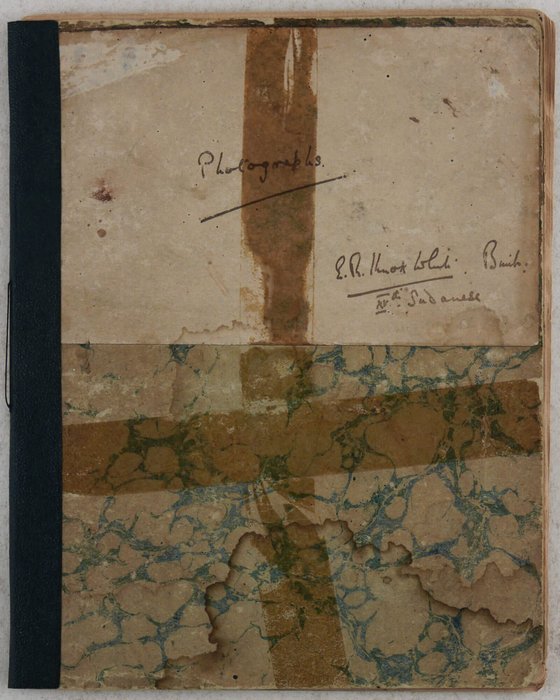
#PD48
Ca. 1915-1918
Octavo (ca. 22 x 17.5 cm or 9 ¾ x 6 ¾ in). 20 paper leaves. 68 mounted gelatin silver photographs from ca. 10.5 x 6.5 cm (4 ¼ x 2 ½ in) to 6 x 3 cm (2 ¼ x 1 in) including ten real photo postcards ca. 13.5 x 8.5 cm (5 ¼ x 3 ¼ in). All photos with either period ink captions on mounts or captioned in negative; one photo with print caption on image. Period cardstock notebook with marbled boards and blue faux leather spine; manuscript title on front board “Photographs.” One image previously removed from album; a few photos mildly faded or with mild silvering, but overall a very good album of interesting photos.
A collection of 68 vernacular gelatin silver photographs including 10 real photo postcards of the Egyptian theatre of WWI, compiled by one E.R. Knox White, a British squadron commander and instructor with the No. 3 Cadet Wing of the Royal Flying Corps and a member of the 15th Sudanese Infantry Battalion.
Several images in the album show the 15th Sudanese Infantry Battalion during their stay in Akobo, a town in modern-day South Sudan. They include photographs of buildings in the town (a military hospital, the “Sheikh’s zahreba,” and the compiler’s residence) and the Anuak people—portraits of women and girls, a man with a large fish, an Anuak canoe, and Anuak children performing a dance “Daluka.”
Over 25 photographs show or are from places in Egypt. There are views of Cairo, including the Heliopolis Palace Hotel, used during WWI as an Australian military hospital; the Cairo Citadel; Opera Square; street scenes; and views of the city, as well as photos of the Great Pyramids and Sphinx in nearby Giza. Photos from Alexandria include the harbour and docks; the hospital ship SS Dunvegan Castle; and nurses and officers boarding lifeboats after the torpedoing of HMT Aragon in December 1917. There are also several views of Port Said.
Also included in the album are portraits of Arab men, women, and children; group portraits of “C” Squadron and officer instructors of the No. 3 Cadet Wing of the Royal Flying Corps; and three photos from Tipperary Hospital in Ireland.
Overall, a lively collection of photographs showing the Middle Eastern and African theatres during the late years of WWI.
“The Middle Eastern theatre of World War I saw action between 30 October 1914 and 30 October 1918…. There were five main campaigns: the Sinai and Palestine, Mesopotamian, Caucasus, Persian, and Gallipoli campaigns.” (Wikipedia)
“The African theatre of the First World War comprises campaigns in North Africa instigated by the German and Ottoman empires, local rebellions against European colonial rule, and Allied campaigns against the German colonies of Kamerun, Togoland, German South West Africa, and German East Africa.” (Wikipedia).

